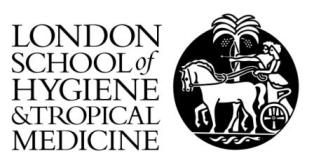The Problem
Acute gastrointestinal (GI) haemorrhage is an important cause of mortality and morbidity worldwide and is one of the most common gastrointestinal emergencies. The incidence of bleeding is highest among the most disadvantaged social groups. About 10% of patients with acute GI bleeding die while in hospital. Other consequences of severe GI bleeding include need for surgical interventions and blood transfusions which are not always available or safe. A simple cost-effective treatment to reduce blood loss could prevent many thousands of premature deaths and improve outcomes in patients with GI bleeding.
The Aim
The HALT-IT trial will determine the effect of early administration of tranexamic acid on mortality, morbidity (re-bleeding, non-fatal thromboembolic events), blood transfusion, surgical intervention and health status in patients with significant GI bleeding.
The Intervention
Tranexamic acid is widely used to reduce blood transfusions in surgery, and reduces the risk of death in bleeding trauma patients. However, there is currently insufficient reliable evidence to recommend the use of tranexamic acid in GI bleeding
The Trial
The HALT-IT trial is a large, international, randomised, placebo controlled trial among 12,000 patients with GI bleeding. All adults with acute significant upper or lower gastrointestinal bleeding where the responsible clinician is substantially uncertain as to whether or not to use tranexamic acid, will be eligible for the trial. Treatment will be allocated randomly and numbered drug/placebo packs will be available in participating hospitals. The primary outcome is death in hospital (cause of death will be described). Outcomes are assessed at death, discharge or 28 days after randomisation whichever occurs first.
Having trouble viewing this video? Watch the HALT-IT Trial Overview on DailyMotion

The HALT-IT trial is funded by the National Institute for
Health Research Health Technology Assessment
programme (project number 11/01/04)


